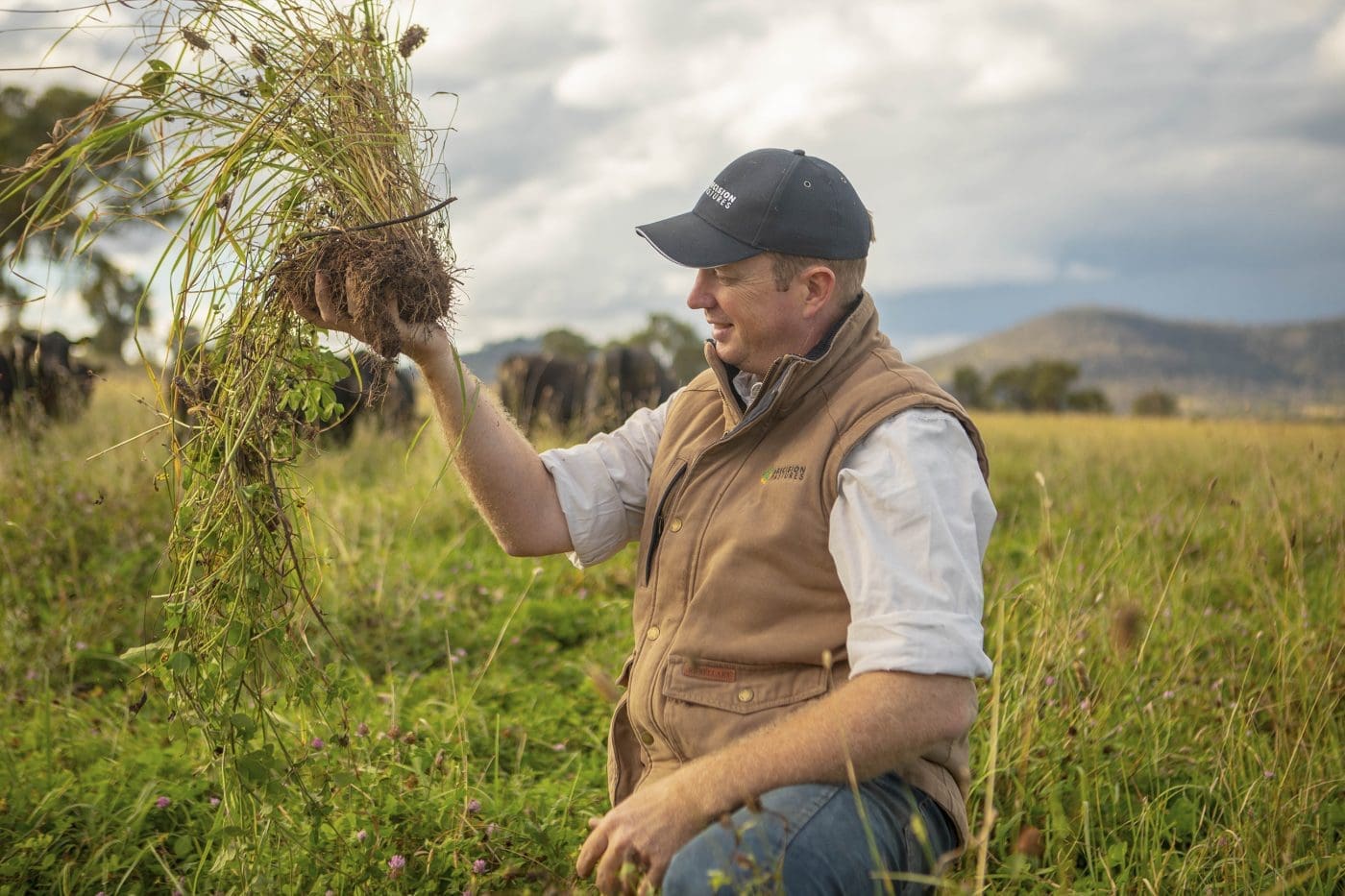
Precision Pasutres’ Hamish Webb explains some of the ins and outs of soil carbon farming. Photo: Mike Terry
THE committee charged with advising the Government on carbon farming methodologies is reviewing the most popular agriculture-based method.
More than 700 soil carbon projects have been signed up since the method was developed in 2014, with a handful of those projects receiving carbon credits in recent years. The idea is measure soil carbon levels, change practices and re-measure in five-year increments – with any increases in soil carbon being issued carbon credits.
The Emissions Reduction Assurance Committee, which advised the climate change minister on whether carbon farming methodologies reach integrity standards, does periodic reviews of each methodology.
Its review of another agricultural based carbon methodology, called the beef herd reduction, resulted in the method being shutdown earlier this year. Cattle Australia has been negotiating for it to be reinstated and says it confident it will get a result.
The same outcome is not being suggested for the soil carbon review with one of the industry’s biggest providers Agriprove describing it as an opportunity to improve.
“By leveraging our extensive experience, we can help shape the evolution of the methodology—ensuring it reflects the best available science and technology while upholding the highest standards of measurement and audit assurance,” its chair Matthew Warnken said.
“This is a $200 billion opportunity for Australian farmers over the next 15 years, and AgriProve remains at the forefront of unlocking its full potential.”
- For more on the review click here
